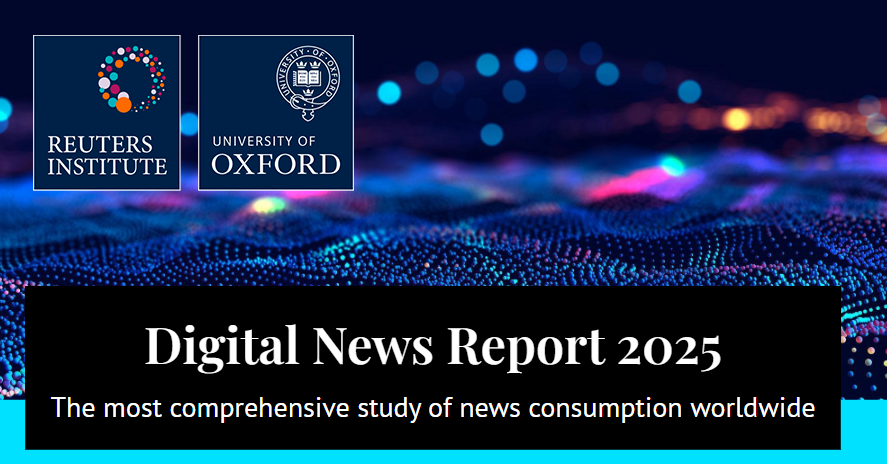
The Reuters Institute Digital News Report 2025, published today, reveals a landmark shift in the UK media landscape, as consumers turn increasingly towards video platforms, social media, and AI-driven tools, while traditional outlets continue to decline. The report, based on a YouGov survey with over 92,000 respondents across 46 countries, highlights significant transformations in news consumption habits, trust levels, and emerging digital dynamics.
Traditional Media in Decline
Across the UK, engagement with traditional news formats, such as television, print, and legacy news websites, continues its steady slide. Viewership of TV news and readership of print newspapers have reached record lows. Audiences are increasingly migrating to short-form video and social platforms, driven by younger demographics favouring new formats.
Rise of Social and Video Platforms
Short video formats on platforms like YouTube, Facebook, Instagram and TikTok are reshaping how audiences, especially millennials and Gen Z, interact with news. Social media recently overtook television as the primary news source in the US. While UK-specific data mirrors this global trend, younger viewers increasingly engage through influencers and video clips rather than formal news programming.
(Image from Reuters Institute for the Study of Journalism: Digital News Report 2025)
Emerging Role of AI
A notable 12% of UK users under 35 and 7% overall now use AI chatbots like ChatGPT, Google Gemini, or Meta AI to obtain news. Users appreciate their real-time capability but express significant concerns about accuracy and lack of transparency, a vital issue for public trust.
Trust and News Avoidance
Public trust in news stabilises at around 40% in many markets, including the UK, while news avoidance remains high. Nearly half of British adults regularly skip news due to negativity, overload, or distrust.
Newsrooms are responding with innovations like “ethics boxes”, bite-sized explainers, and more constructive journalism to engage disengaged audiences.
Podcasting Gains Traction
Podcasts remain influential, with 7% of respondents referencing podcasts as a news source. They offer in-depth commentary and storytelling. In the UK, their influence complements written and broadcast news, with digital audio formats holding firm as trusted sources.
Platform Polarisation and Misinformation Risks
The report highlights a global shift in platform biases, such as more right‑leaning audiences flocking to X after Musk’s acquisition in the US. While the UK case is less polarised, the proliferation of professional and amateur influencers raises concerns around misinformation, requiring stronger content oversight.
Industry Response and Strategy
UK publishers are innovating to counteract declining engagement and growing fatigue. From structured storytelling to explainer series and newsletters, they aim to retain audiences through variety and verifiable journalism. AI is being cautiously trialled to personalise content, though trust in its use remains tepid, with only 13% supporting the BBC’s AI content tailoring initiative.
Outlook
The Digital News Report 2025 portrays a UK media landscape in transition. Traditional news organisations must innovate or risk irrelevance as consumer habits evolve, caused by social video, AI tools, and content fatigue. For publishers and regulators alike, the path forward demands adaptation through credible, engaging, and transparent content strategies to regain public trust and engagement.
For Wales, it highlights the need for greater innovation and increased independent public interest news provision.
